Crack Cocaine Addiction: Signs, Symptoms, and Treatment
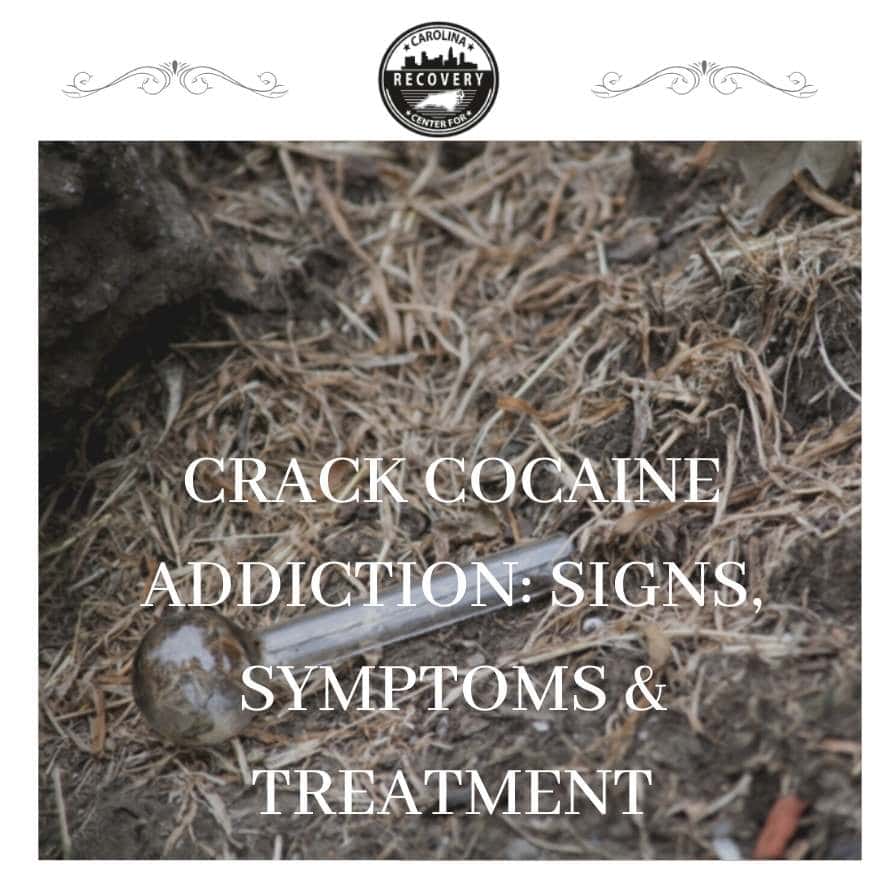
Medically Verified: 2/1/24
Medical Reviewer
Chief Editor

All of the information on this page has been reviewed and verified by a certified addiction professional.
Crack cocaine addiction can develop rapidly and progress until individuals seek treatment. Cocaine is a stimulant drug that is mixed with baking soda and heating to form crack: a cheaper and highly addictive form of cocaine. Even though getting sober from this drug isn’t easy, our crack addiction treatment program in North Carolina is equipped with the tools and resources needed for a successful recovery.
Crack is more substantially more potent than cocaine. Many people compulsively use the drug simply chasing the high they felt the first time they used it. However, the high produced by crack cocaine is extremely short, so more of the drug is needed on a frequent basis to maintain one’s high. After repeated drug abuse, physical and psychological dependence or addiction develops. When a person needs to use crack in order to feel normal, they have developed an addiction.
Signs and Symptoms of Crack Cocaine Addiction
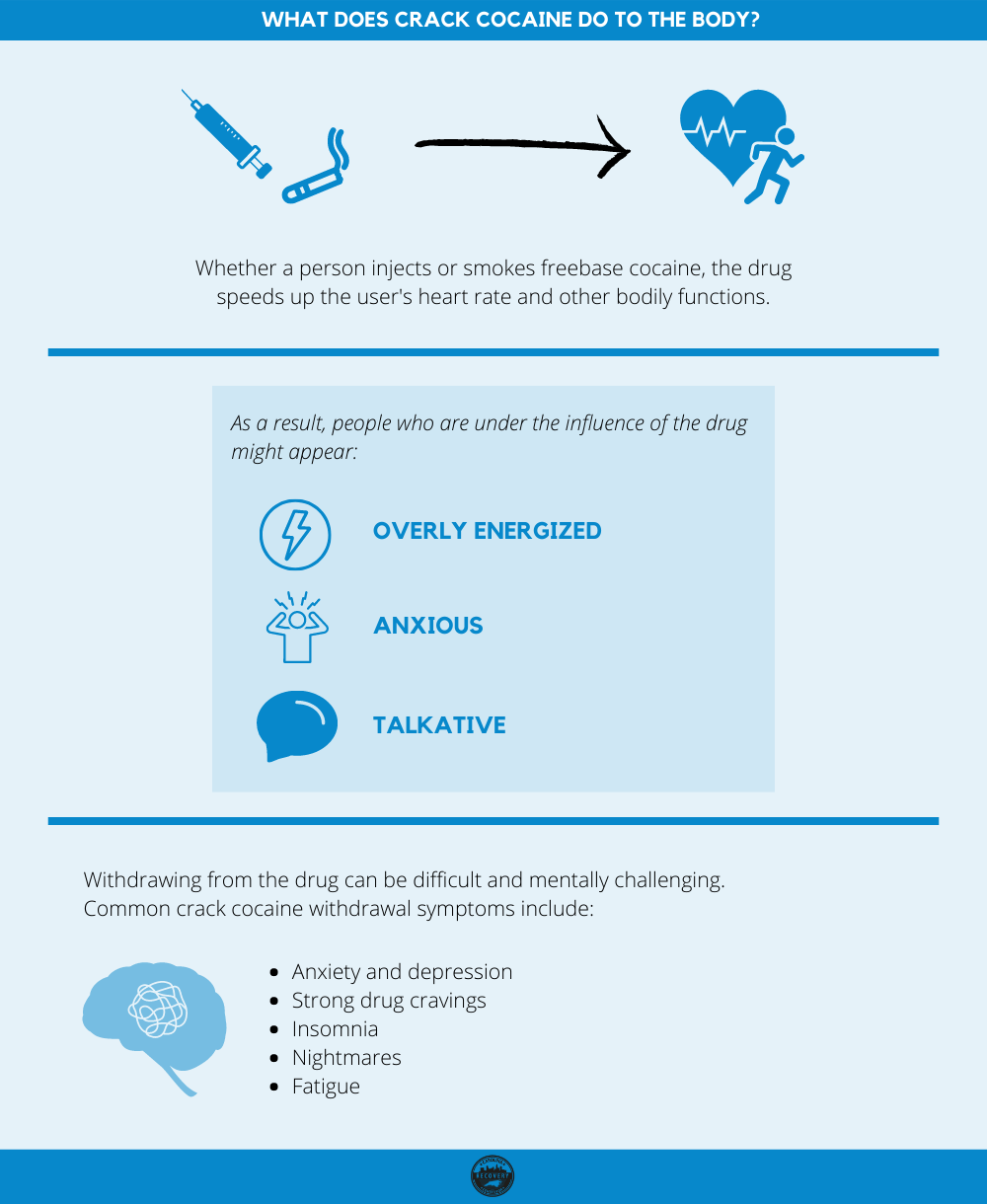
When people use crack, the drug creates an excess amount of dopamine – a feel-good chemical that is normally produced naturally. Repeated drug abuse causes the brain to be unable to produce dopamine as it usually would, causing the body to become dependent on a substance. Once a person is dependent, intense drug cravings and difficult withdrawal symptoms make it extremely difficult to quit using the drug.[1]
Someone who is addicted to crack cocaine may be under the influence of the drug on a regular basis. Crack cocaine intoxication is associated with the following:
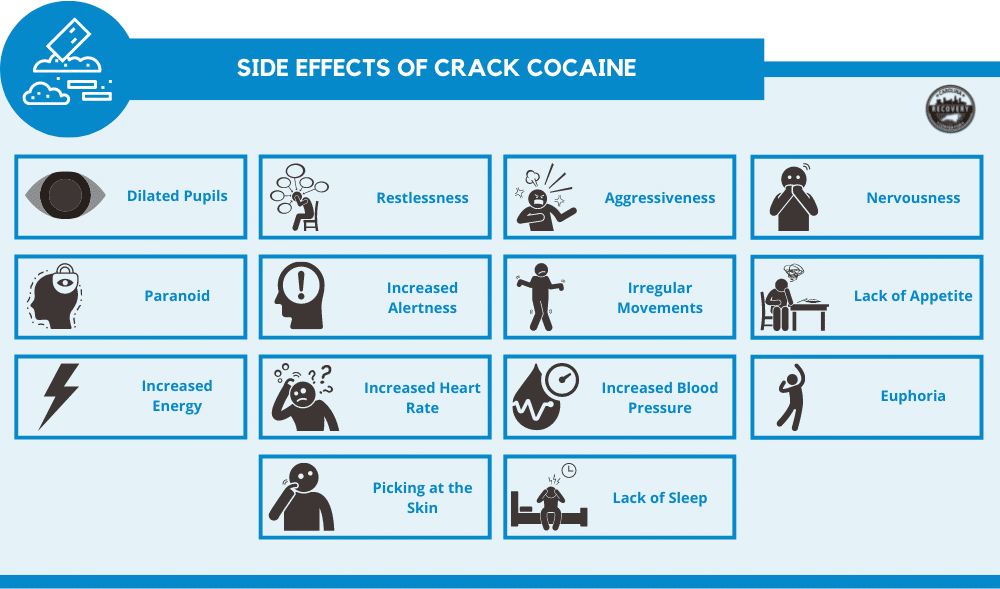
- Dilated pupils
- Restlessness
- Aggressive, nervous, or paranoid behavior
- Increased alertness
- Bizarre behaviors or body movements
- Lack of appetite
- Increased energy, heart rate, and blood pressure
- Euphoria
- Picking at the skin
- Lack of sleep
People who abuse crack cocaine in the long term may experience an array of negative side effects. Some long-term dangers of crack cocaine addiction include:[2]
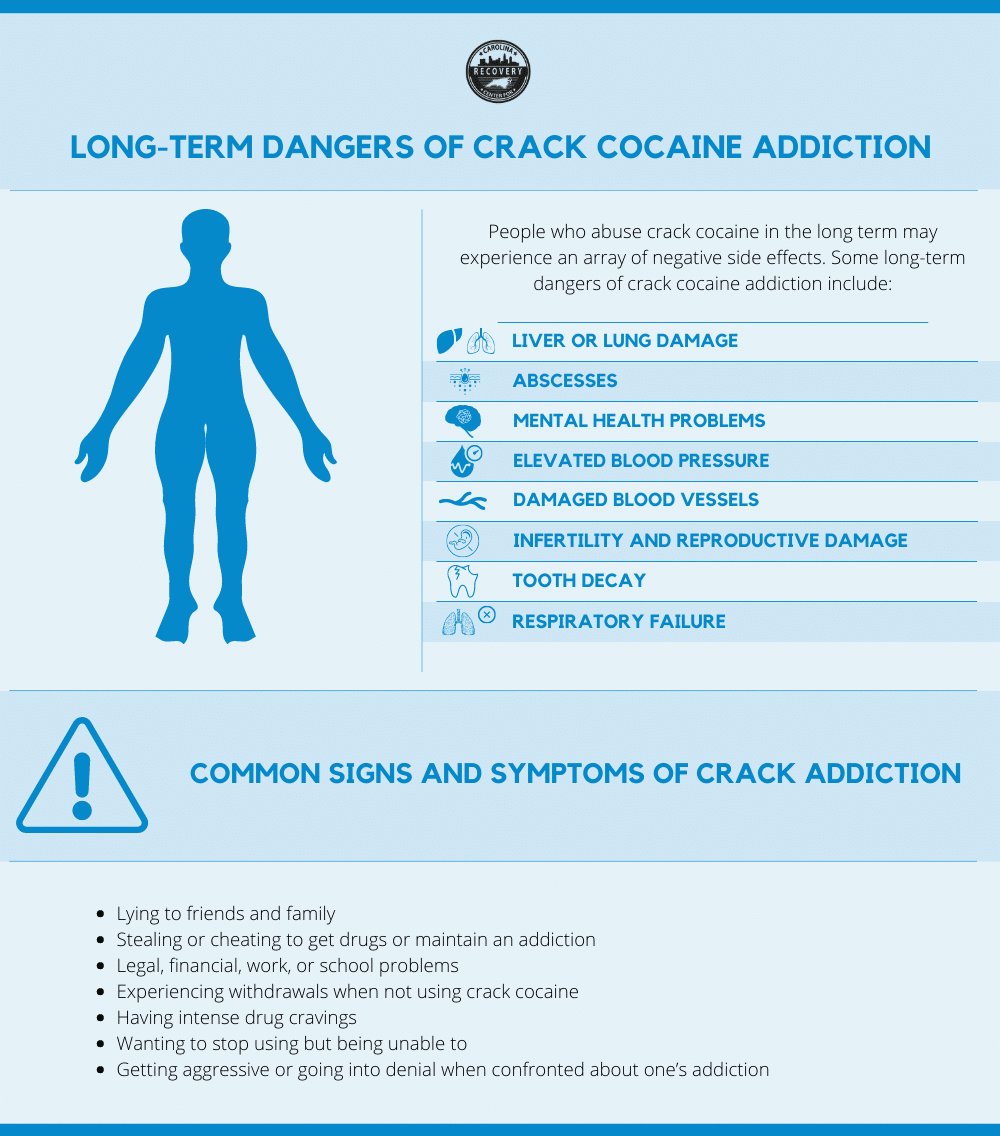
- Liver or lung damage
- Abscesses
- Depression, anxiety, psychosis, delirium, or other mental health problems
- Elevated blood pressure
- Damaged blood vessels
- Infertility and reproductive damage
- Tooth decay
- Respiratory failure
Lastly, common signs and symptoms of crack addiction are:
- Lying to friends and family
- Stealing or cheating to get drugs or maintain an addiction
- Legal, financial, work, or school problems
- Experiencing withdrawals when not using crack cocaine
- Having intense drug cravings
- Wanting to stop using but being unable to
- Getting aggressive or going into denial when confronted about one’s addiction
People who are suffering from crack addiction can benefit from a treatment program in North Carolina.
Detoxing from Crack Cocaine
Detox is the first step of an addiction treatment program. It involves helping individuals cleanse their body from drugs and alcohol. Even though crack withdrawal is not as intense or severe as withdrawal from other substances like opiates or benzodiazepines, crack still interferes with the brain’s reward system and the balance in the body. As a result, withdrawing from crack can be difficult and mentally challenging.
Common crack cocaine withdrawal symptoms include:[3]
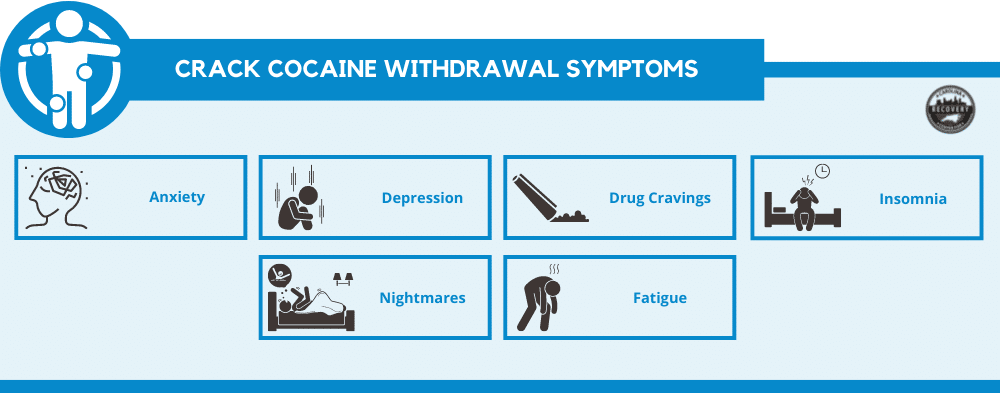
- Anxiety and depression
- Strong drug cravings
- Insomnia
- Nightmares
- Fatigue
These symptoms may begin just hours after the last dose of crack wears off and can last anywhere from 3-7 days. Some people may experience post-acute withdrawal symptoms (PAWS) that can last for weeks or months and consist of symptoms like sleep disturbances and depression. How long these symptoms last and how severe they depend heavily on how much crack a person used and how often they used it.
Currently, there are no medications used to help treat the withdrawal symptoms in people with crack cocaine addiction. Some patients may be prescribed buspirone, an anti-anxiety medication to help manage anxiety. In addition, crack addiction treatment and detox programs in North Carolina utilize therapies that can help curb cravings and mitigate withdrawal symptoms.
Treatment for Crack Cocaine Addiction
The best option for people addicted to crack is inpatient rehab. Inpatient rehab, or residential treatment, is the highest level of care available where patients live at the treatment facility. They will participate in therapy, support groups, and educational classes to learn how to cope with triggers and stay sober in the future. Some therapies and activities you can expect at inpatient crack addiction treatment centers in North Carolina include:
- Holistic healing methods
- Behavioral therapy
- Individual counseling
- Group therapy
- Trauma-informed care
- Psychoeducational groups
- 12-Step programming
Recovering from addiction is a lifelong journey, so recovery doesn’t end with finishing a treatment program. That’s why substance abuse counselors always encourage ongoing care in some form, ranging from sober living and outpatient rehab to 12-step participation. Ongoing support helps patients stay sober in the long-term after they have completed treatment.
Get Started on Your Recovery With Crack Addiction Treatment in North Carolina
Overcoming an addiction to crack cocaine can seem impossible, especially if you are currently tangled up in your substance use. However, our drug and alcohol treatment programs in North Carolina are equipped to help you find your individual path to recovery. Call today to speak to a dedicated addiction treatment specialist.
References:

